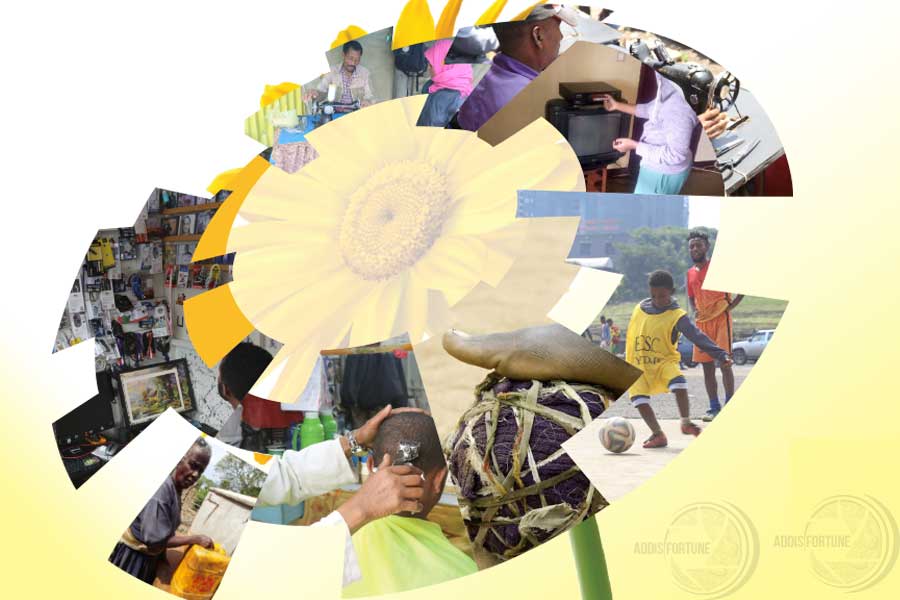
Nov 30 , 2024
By Carolyn Kissane
Our choices come with hidden social costs. Sometimes, they are as trivial as deciding where to shop, but even these small decisions can reveal the dynamics of human interactions and the pressures that come with them.
Last week, I found myself taking an unfamiliar route home. It was not because I wanted a change of scenery or was exploring new path. It was because of a three-liter bottle of cooking oil I had bought from a merchant other than my neighborhood shopkeeper. I knew my usual shop only sold oil in one-liter or five-liter quantities, but that wasn’t the only issue. The shopkeeper has a knack for making customers feel scrutinized, slipping in comments about their choices. He would say that we only come to his store when it suits us, half-joking, half-serious. I did not want to face that critique, so I detoured to avoid him.
This minor evasion got me thinking about the weight we give to others’ opinions and how it shapes our behaviors. My decision was not about saving face but about maintaining a sense of peace. Yet, the irony was not lost on me. By avoiding a brief, potentially uncomfortable interaction, I had created more discomfort for myself—a longer walk, the weight of the oil, and the gnawing self-awareness of having gone out of my way to dodge an imagined judgment.
Living within a community feels like living under constant observation. It is not always malicious; people take note of routines, preferences, and absences as a natural part of sharing a space. But this benign surveillance can sometimes morph into a subtle form of control. The shopkeeper’s comment was a reminder of the unspoken rules that demand loyalty, reciprocity, and acknowledgment.
Every choice is a statement. But how often do we weigh our decisions against the potential judgment of others?
For many, this mental calculation is an automatic reflex. Whether it is choosing what to wear, deciding what to say, or determining the best route home, we are constantly assessing how our actions might be perceived.
This emotional tax can be exhausting. It creates a constant tension between our needs and the expectations of those around us. It also breeds a culture of avoidance, where moments of potential confrontation are sidestepped instead of addressed. My decision to take a detour was a textbook example: I prioritised avoiding discomfort over efficiency, only to end up feeling more burdened.
Moments like these beg the question: How do we reclaim our authenticity in a world deeply connected with expectations? Perhaps it starts with small acts of courage and choosing to face a shopkeeper’s critique, expressing an unpopular opinion, or simply letting go of the need to explain ourselves. These acts might feel risky in the moment, but they are also opportunities to reinforce our autonomy.
Communities thrive on connection, and connection requires vulnerability. But vulnerability does not mean conformity. It means showing up as we are, even when it feels uncomfortable. The next time I find myself weighed down by others’ judgments, I will try to remember that the path of least resistance is not always the one that leads home.
PUBLISHED ON
Nov 30,2024 [ VOL
25 , NO
1283]



Viewpoints | Dec 19,2021

View From Arada | Oct 16,2020

Editorial | Nov 19,2022

Fortune News | Sep 08,2019

Commentaries | Dec 09,2023

Life Matters | Nov 04,2023

Sunday with Eden | Mar 05,2022

Viewpoints | Mar 09,2019

Commentaries | Feb 05,2022

My Opinion | 131766 Views | Aug 14,2021

My Opinion | 128149 Views | Aug 21,2021

My Opinion | 126095 Views | Sep 10,2021

My Opinion | 123717 Views | Aug 07,2021

Dec 22 , 2024 . By TIZITA SHEWAFERAW
Charged with transforming colossal state-owned enterprises into modern and competitiv...

Aug 18 , 2024 . By AKSAH ITALO
Although predictable Yonas Zerihun's job in the ride-hailing service is not immune to...

Jul 28 , 2024 . By TIZITA SHEWAFERAW
Unhabitual, perhaps too many, Samuel Gebreyohannes, 38, used to occasionally enjoy a couple of beers at breakfast. However, he recently swit...

Jul 13 , 2024 . By AKSAH ITALO
Investors who rely on tractors, trucks, and field vehicles for commuting, transporting commodities, and f...

Jul 5 , 2025
Six years ago, Ethiopia was the darling of international liberal commentators. A year...

Jun 28 , 2025
Meseret Damtie, the assertive auditor general, has never been shy about naming names...

Jun 21 , 2025
A well-worn adage says, “Budget is not destiny, but it is direction.” Examining t...

Jun 14 , 2025
Yet again, the Horn of Africa is bracing for trouble. A region already frayed by wars...

Jul 6 , 2025 . By BEZAWIT HULUAGER
The federal legislature gave Prime Minister Abiy Ahmed (PhD) what he wanted: a 1.9 tr...

Jul 6 , 2025 . By YITBAREK GETACHEW
In a city rising skyward at breakneck speed, a reckoning has arrived. Authorities in...

Jul 6 , 2025 . By NAHOM AYELE
A landmark directive from the Ministry of Finance signals a paradigm shift in the cou...

Jul 6 , 2025 . By NAHOM AYELE
Awash Bank has announced plans to establish a dedicated investment banking subsidiary...